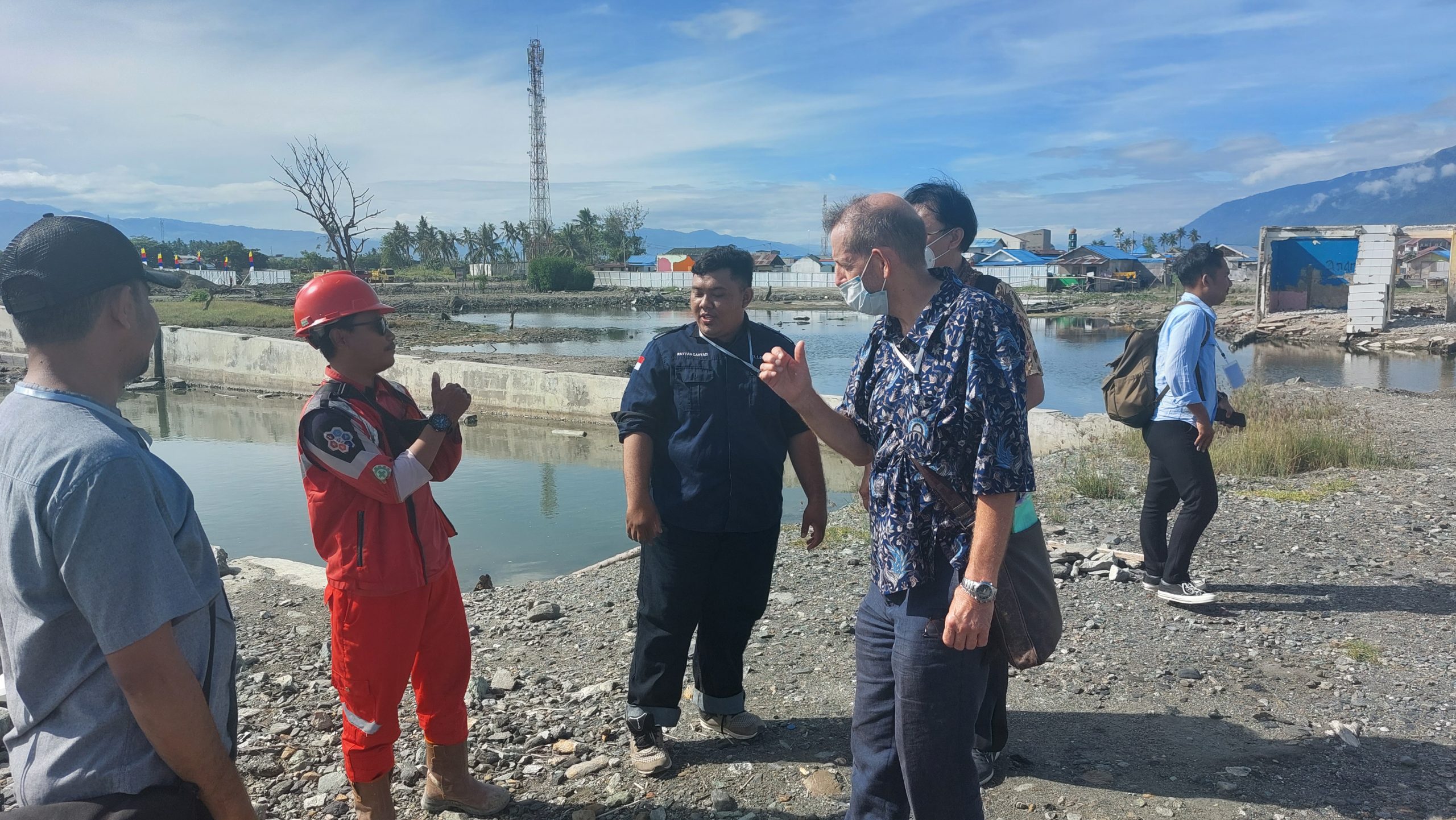The mission of the BUiLD project is to develop Indonesia’s national crisis management and resilience knowledge, preparedness and response capability, through the design and implementation of a Disaster Resilience Framework across Indonesia and its Higher Education Institutes.
Michael Fuller MBE, BUiLD Project Manager
Why does Indonesia need the BUiLD project?
Indonesia is at constant risk of volcanic eruptions, earthquakes, floods and tsunamis. According to the National Board for Disaster Management (BNPB) 2,800 disasters occurred in Indonesia in 2018 leaving 4,800 people dead or missing, 21,000 injured, and 10 million had to migrate. Besides, extreme wet or dry seasons can ruin food crop harvests, trigger inflation and put financial pressure on the poor, whilst man-made disasters such as forest fires can have far-reaching consequences.
As a signatory of the Sendai Framework and the UN Sustainable Development Goals (SDGs), Indonesia is committed to improving its disaster resilience. The BNPB was established in 2008 to legislate on key risk reduction policies and the allocation of research and early warning tools.
Article 6 Law No 24 (2007) articulates the responsibility of the Government in the conduct of disaster management ranging from disaster risk reduction efforts, assurance of the rights of people affected by disasters, recovery of conditions from disaster impacts, budget allocations and the maintenance of archives.
Challenges in building Indonesia’s disaster resilience
Problems that impede the effective implementation of mitigation and response strategies remain endemic in each aspect of disaster resilience, including sub-optimal performance in coordination and cooperation in emergency response and post disaster recovery, inconsistent data and lack of version control in capturing the impact of disasters, too much emphasis on emergency response rather than disaster prevention and risk reduction / awareness training, a notion that the role of the government and other external parties is too dominant with little involvement of local communities, suboptimal utilisation of science and technology in reducing disaster risks, such as the utilisation of technology-based early warning systems, low risk awareness amongst the local population, and weak law enforcement and corruption.
Universities as change agents in building disaster resilience
Capacity building in universities is listed as one of Indonesia’s development priorities in its endeavour to improve the country’s disaster resilience, alongside the enhancement of disaster management regulatory frameworks, the integration of risk reduction programmes into development programmes, community based disaster management, the establishment of an Indonesian Rapid Response and Action Team, specific risk reduction programmes for groups with special needs, and the enhancement of the private sector, NGOs and government partner organisations.
Universities have strong networks within the public and private sector and with local, regional and international communities. This places them into a unique position to not only act as catalysts for research and educational initiatives, but also to mobilise networks, resources and specialist expertise in the event of emergencies and during recovery phases. This position is strengthened through their capacity to contribute to knowledge transfer, scenario planning, post-assessments and impact studies, curriculum development and innovative research initiatives to improve the diverse aspects of disaster resilience prioritised in the National Disaster Management Plan.
As socially responsible organisations, universities have a duty to reflect on how their educational strategies, research and business development activities, engagement with stakeholders and their institutional governance relate to the SDG disaster risk reduction targets. Moreover, universities are typically large organisations with a duty of care towards their students, staff and associated communities and whose activities contribute substantially to local and regional socioeconomic development.
Whilst numerous organisations, projects and good practice models already exist dedicated to improving various aspects of disaster resilience, universities can serve as key players in their consolidation, innovation, dissemination and future implementation.
Nadine Sulkowski, BUiLD Project Lead
The purpose of the BUiLD Project
BUiLD stands for “Building Universities in Leading Disaster Resilience”. It is funded by the Erasmus+ Capacity Building in Higher Education Fund.
We are creating a Centre of Excellence in Disaster Resilience in each participating Indonesian university. Under the umbrella of a National Disaster Resilience Network, these centres will act as local enablers in the implementation of a comprehensive Disaster Resilience Framework. Based on the penta helix model, the vision behind the centres and the National Disaster Resilience Network is to facilitate collaboration between universities and the public, private and third sector.
The Disaster Resilience Framework integrates resilience capacity building at multiple levels, including the individual, programme, institutional, regional and national level. It addresses several aspects of resilience capacity-building, including university governance, disaster response and recovery capability, disaster awareness training, curriculum development, fundraising, networking, knowledge transfer, and research and innovation. The BUiLD project therefore also aims to increase the attractiveness of disaster resilience education and career development in order to build future leadership capacity.
A strong commitment to realising these objectives and the vision for the creation of a comprehensive Disaster Resilience Framework is shared amongst all consortium partners. Cumulatively, Indonesian partner universities have a diverse network and close working relationships with key organisations. These include the National Ministry of Education and Higher Education, the National Disaster Mitigation Agency (BNPB), non-governmental disaster aid organisation ACT Alliance, the Muhammadiyah Disaster Management Centre (MDMC) and funding platforms kitabisa and Lazismu.
At local level, partner universities have working relationships with emergency services, including the police, hospitals, the military and with local businesses and communities. Through the BUiLD project, we endeavour to consolidate and considerably strengthen the disaster resilience expertise and response capability that already exist in partner universities and their networks.
Aligned with the aims of the Erasmus+ Capacity Building in Higher Education programme, the project will lead to the modernisation of university governance across Indonesia, improve the management and functioning of universities in crisis situations, and strengthen their external relationships.
Professor Neil Towers, BUiLD Advisory Group

